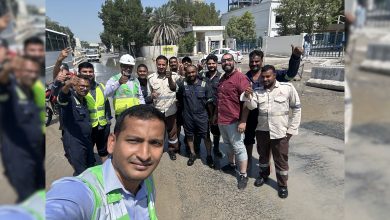A Filipina social scientist who earned her masters and doctorate degree in Stanford University has cracked the code to help narrow literacy gap, especially in less advanced countries across the globe.
Dr. Maria Beebe has visited many parts of the world, not for leisure but to impart her grasp in the field of technological literacy.
She believes that creating collaborative solutions between organizations and societies in a bid to utilize the Internet of all things (IoT) can do a lot to alleviate illiteracy, which can, in turn, create a sustainable future that spills over a wide-range of sectors.
The Filipino Times had the rare opportunity to catch up with Dr. Beebe during one of her trips. She shared with TFT a clear picture of what she does.


An educator by profession, Dr. Beebe’s interest in the field of Information and Communications Technology (ICT) was piqued during the early 90s. Time was when the Internet was only starting its baby steps as a brainchild of technology.
Blazing a trail with her work
Even without the foreknowledge of most technology experts of how the Internet can empower the underserved communities, Dr. Beebe already became especially curious of how it could change the way people think, teach and learn.
“When I first saw a website in 1993, I predicted how useful it would be for teaching and learning. I learned how to do simple codes to produce the first website for USAID/South Africa mainly because of the satisfaction of inputting something in South Africa and voila, the information showed up in Washington, DC without using the fax,” shared Dr. Beebe.


It was during those years that her husband, James, had already retired from USAID. But Dr. Beebe wished to continue her work in international development.
She mapped out the idea of a computer program that could reap the full potential of telecommunications in developing new learning tools through the Internet.
“The promise of the Internet for teaching and learning was starting to be realized. Based on stakeholder consultations, I proposed a Knowledge Exchange and Learning Partnerships (KELP) program in South Africa, followed by an Africa-wide Network for Telecommunications Policy and Regulation (nicknamed Nettel) to build capacity in the policy, financial, and technical aspects of telecommunications,” said Dr. Beebe.


When her proposals were accepted, she made a decision to dig further, boning up on online learning contents. As the years went by, several universities and institutions in Botswana, Tanzania, South Africa, Zambia, Uganda, Kenya, Malawi and Nigeria believed in her sure-fire studies and projects.
Heading back to her roots
After nearly a decade, Dr. Beebe then met up with a good friend back in the Philippines.


“I visited the Philippines to meet up with Dr. Emmanuel Lallana about his work with the CICT and APNIC. He asked me why I was doing my work in Africa and in Afghanistan but not in the Philippines,” she said.
Beebe and Lallana then created a digital library which contained the beginnings of e-learning work. Along with this, she also started discussions on the same topic that revolved around maximizing the Internet to teach and learn. This came following her observation that many of the State Universities and Colleges (SUCs) in the Philippines still taught Computer Science only ‘theoretically’, without much core focus on application.


“Now, more than ten years later, the Department of Education is moving the needle when it comes to ICTs for education,” according to Dr. Beebe, as she shared her delight on the advancements reached by the Philippines’ education department.
This means as well as that their efforts have become fruitful and is now in full in swing.
Today, Dr. Beebe continues to visit many places, doing pro-bono work for different non-profit institutions. It’s her way to increase the impact of her social cause of bringing knowledge at the fingertips of marginalized communities across the globe.


“As Filipinos, we are deeply rooted in pakikipag-kapwa that entails recognition and respect of the other as being different from oneself, requiring the ability to be in tune with other people’s motives in relation to the self. Let us remind ourselves: Kapwa ko, mahalin ko,” shares Dr. Beebe.






